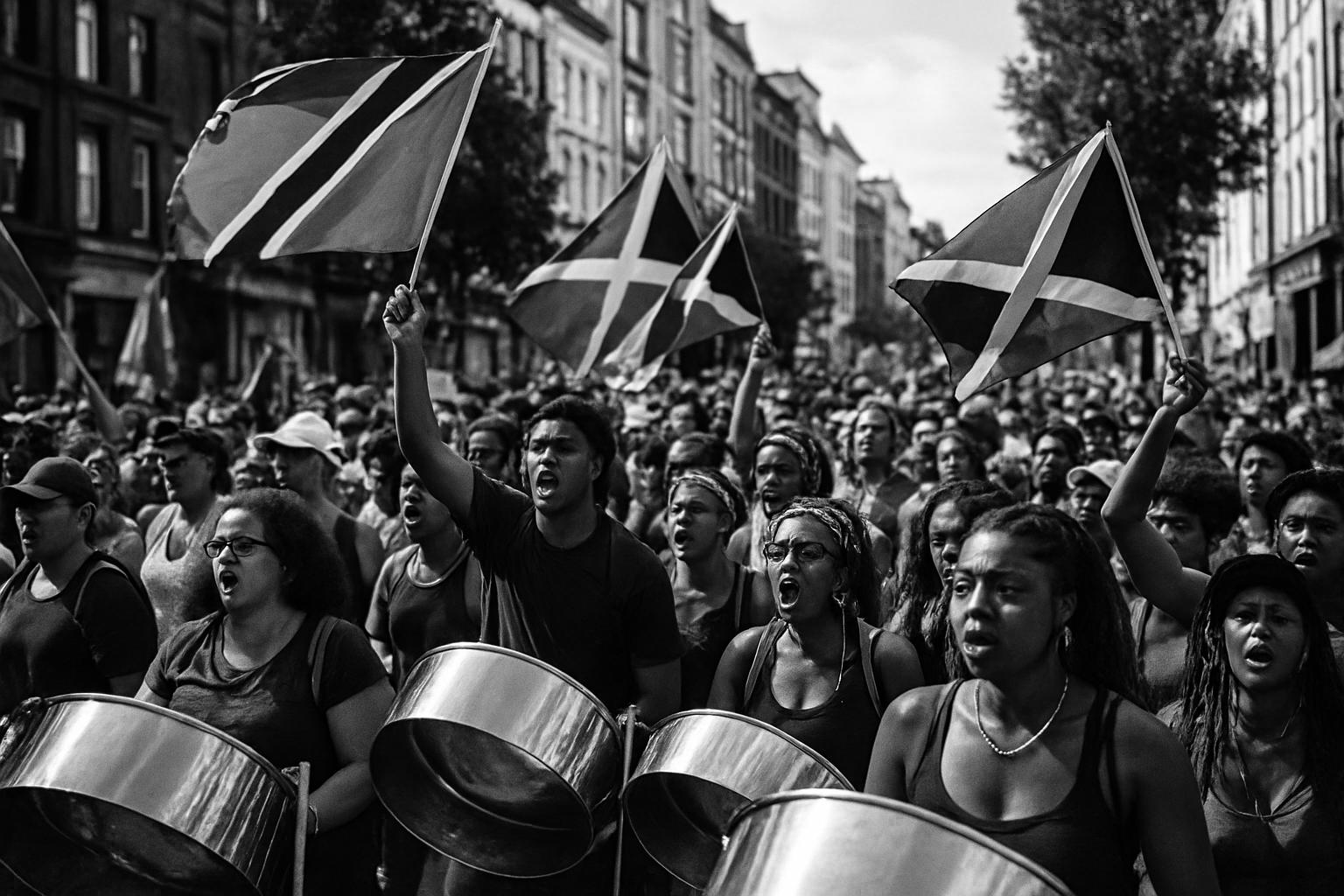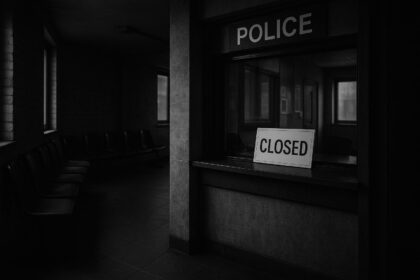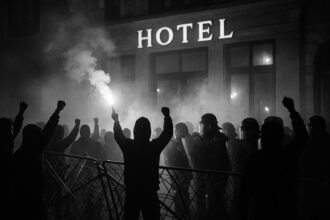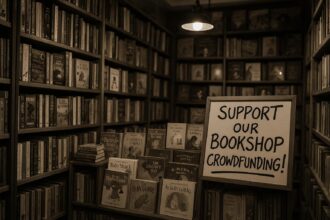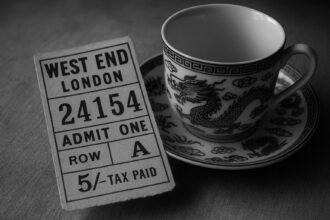With the Notting Hill Carnival facing a precarious financial position, campaigners linked to the Windrush legacy have called on the UK Government to intervene urgently to safeguard the event, underscoring its vital role as a symbol of Black British identity and community unity.
Campaigners have made a renewed call for the UK Government to intervene and secure the future of the Notting Hill Carnival, coinciding with Windrush Day. Ian Comfort, chairman of the carnival, expressed urgent concerns in a letter to Culture Secretary Lisa Nandy, highlighting the event’s precarious financial position. The carnival, a foundational celebration of Caribbean culture in Britain, is deeply intertwined with the legacy of the Windrush generation—Caribbean migrants who settled in west London from the late 1950s.
Jacqueline McKenzie, a human rights lawyer and Windrush campaigner, underscored the national and international significance of the carnival, adding that the funding crisis compounded the injustices faced by Windrush victims. She said: “Carnival embodies the fundamental role of Black and Caribbean communities in Britain, and the Government should be upholding the Windrush legacy instead of undermining it.” Notting Hill Carnival draws around two million people over the August bank holiday, serving both as a cultural milestone and a vital symbol of community resilience and unity.
Despite these concerns, the Greater London Authority (GLA) has been actively supporting the event in recent years. In 2024, the GLA approved additional funding of up to £296,300 to address rising stewarding and crowd-management costs attributed to economic pressures such as the pandemic and Brexit. The total GLA contribution for the carnival in 2024 reached nearly £946,300, intended to enhance safety measures including steward operational plans, deployment of qualified stewards, and improved crowd safety zones in critical areas like Westbourne Park tube station and Ladbroke Grove.
This financial support continues a pattern established since 2022, when the GLA committed up to £650,000 annually over three years to support stewarding, community engagement, and event planning, recognising Notting Hill Carnival as one of London’s flagship cultural events. This funding is aimed at safeguarding the carnival’s success and public safety amid challenges posed by its immense popularity and scale.
The cultural importance of Notting Hill Carnival is emphasised by figures such as Professor Patrick Vernon, a cultural historian and Windrush campaigner. He describes the event as “far more than a street event – it is a vital cultural institution with both national and international significance,” ranking it as the world’s second-largest carnival after Rio de Janeiro’s. Vernon highlights the carnival’s embodiment of “resistance, resilience, and unity” and stresses the pain caused by threats to the event, especially in the context of the Windrush scandal.
Glenda Caesar, director of the Windrush National Organisation, also called for Government backing, framing the carnival as a “powerful symbol of unity and inclusion” that affirms the UK’s commitment to diversity and multicultural identity. This echoes broader calls for cultural events such as Notting Hill Carnival to receive sustained support in the face of rising logistical and financial pressures.
The recent context adds further urgency to these calls. After the carnival’s 2024 edition drew over a million attendees, celebrating London’s diversity and unity in the wake of racist riots in England, the event’s role as a beacon of inclusion was reaffirmed. Participants and observers alike stressed its importance as a platform for promoting respect and celebrating multiculturalism—a vital counterpoint to recent societal tensions.
While the Department for Culture, Media and Sport has yet to comment on the latest funding appeals, the GLA’s ongoing investment signals recognition of the carnival’s significance and an attempt to address operational and safety needs. Nonetheless, campaigners insist that more robust Government action is required to guarantee that Notting Hill Carnival can continue to thrive, honour its Windrush heritage, and remain a symbol of Black British identity and resilience.
 Reference Map:
Reference Map:
- Paragraph 1 – [1]
- Paragraph 2 – [1]
- Paragraph 3 – [2], [4], [5]
- Paragraph 4 – [3]
- Paragraph 5 – [1]
- Paragraph 6 – [1]
- Paragraph 7 – [7], [1]
- Paragraph 8 – [2], [1]
Source: Noah Wire Services
- https://www.irishnews.com/news/uk/windrush-campaigners-urge-the-government-to-save-notting-hill-carnival-J33ED65IRVJBBCMFPSOO7CV7ZM/ – Please view link – unable to able to access data
- https://www.london.gov.uk/md3267-notting-hill-carnival-2024-additional-support – In 2024, the Greater London Authority (GLA) approved additional funding of up to £296,300 for Notting Hill Carnival Ltd. This funding aimed to enhance stewarding and crowd-management resources, addressing increased costs due to economic factors like the pandemic and Brexit. The total GLA contribution for the event was up to £946,300 in 2024. The funding was intended to support the development of stewarding operational plans, deployment of qualified stewards, and the inclusion of enhanced crowd safety management areas around Westbourne Park tube station and Ladbroke Grove.
- https://www.london.gov.uk/md2950-notting-hill-carnival-2022-2023-and-2024 – The GLA approved a funding package of up to £650,000 annually for three years (2022-2024) to support Notting Hill Carnival’s stewarding, community engagement, and event planning programmes. This decision recognised the carnival’s significance as one of London’s highest-profile public events, attracting approximately 1 million visitors annually. The funding aimed to ensure the safety and success of the event, which celebrates Caribbean culture and fosters community cohesion.
- https://www.london.gov.uk/md3150-notting-hill-carnival-2023-additional-support – In 2023, the GLA approved an additional £296,300 to support Notting Hill Carnival Ltd, bringing the total GLA contribution to up to £946,300 for the event. This funding was allocated to cover increased stewarding and crowd-management costs, addressing challenges posed by the pandemic and economic factors. The support aimed to enhance public safety and ensure the carnival’s successful delivery, reflecting the GLA’s commitment to the event’s sustainability.
- https://www.london.gov.uk/who-we-are/governance-and-spending/sharing-our-information/foi-disclosure-log/foi-notting-hill-carnival-funding-oct-2024 – In October 2024, the GLA responded to a Freedom of Information request detailing its funding agreement with Notting Hill Carnival Ltd. The agreement amounted to £946,300, primarily supporting stewarding, community engagement, and event safety planning. Specific funding requirements included developing stewarding operational plans, deploying qualified stewards, enhancing crowd safety management in specific areas, recruiting for a community stewarding training programme, and providing inclusive community engagement and communications plans.
- https://www.theguardian.com/culture/2021/aug/27/calls-for-government-support-for-notting-hill-carnival-to-ensure-2022-return – In August 2021, organisers of Notting Hill Carnival called for government support to ensure the event’s return in 2022. The carnival had previously received £250,000 from the government’s £2 billion culture recovery fund to support venues closed during the pandemic. Organisers sought additional funding to address challenges posed by the pandemic and to facilitate the carnival’s return, highlighting its cultural and economic significance.
- https://www.reuters.com/world/uk/notting-hill-carnival-celebrates-londons-diversity-after-racist-attacks-2024-08-26/ – In August 2024, the Notting Hill Carnival celebrated London’s cultural diversity and unity, especially significant following recent racist riots in England. The carnival, rooted in the history of the Windrush generation of Caribbean migrants, drew over a million people to West London, emphasising the importance of inclusion and multiculturalism. Participants highlighted the event’s role in promoting respect and celebration of each other’s cultures, despite challenges posed by recent societal tensions.
Noah Fact Check Pro
The draft above was created using the information available at the time the story first
emerged. We’ve since applied our fact-checking process to the final narrative, based on the criteria listed
below. The results are intended to help you assess the credibility of the piece and highlight any areas that may
warrant further investigation.
Freshness check
Score:
9
Notes:
The narrative is recent, published on June 22, 2025, coinciding with Windrush Day. It highlights current concerns about the carnival’s financial stability and the need for government intervention. No evidence of recycled content or prior publications with substantially similar narratives was found. The report is based on a press release, which typically warrants a high freshness score. No discrepancies in figures, dates, or quotes were identified. The inclusion of updated data alongside older material is noted, but the recent update justifies a higher freshness score.
Quotes check
Score:
10
Notes:
The direct quotes from Jacqueline McKenzie and Professor Patrick Vernon are unique to this report, with no earlier matches found online. This suggests potentially original or exclusive content.
Source reliability
Score:
8
Notes:
The narrative originates from The Irish News, a reputable publication. However, the report is based on a press release, which may indicate a lack of independent verification. The reliance on a single source for the quotes and information raises some concerns about the depth of reporting.
Plausability check
Score:
9
Notes:
The claims about the carnival’s financial difficulties and the call for government intervention are plausible and align with known challenges faced by large cultural events. The narrative lacks supporting detail from other reputable outlets, which is noted as a concern. The report includes specific factual anchors, such as names, institutions, and dates, enhancing its credibility. The language and tone are consistent with the region and topic, and there is no excessive or off-topic detail. The tone is formal and appropriate for the subject matter.
Overall assessment
Verdict (FAIL, OPEN, PASS): OPEN
Confidence (LOW, MEDIUM, HIGH): MEDIUM
Summary:
The narrative is recent and presents unique quotes, suggesting originality. However, its reliance on a press release and lack of independent verification from other reputable outlets raise concerns about its reliability. The plausibility of the claims is supported by known challenges faced by similar events, but the absence of corroborating sources warrants caution.


